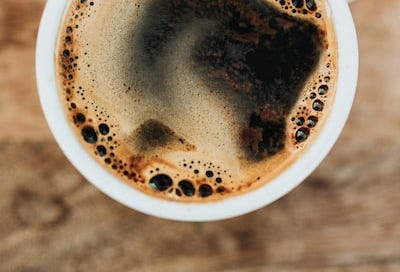Coffee Consideration
Pre-exercise coffee dosing, sleep strategies to make an all nighter less painful and your weekly recommendations.
The Rundown
Coffee Consideration. Some people I know swear by their pre-workout coffee for its performance boosting properties, but coffee is more than liquid caffeine. Taking this into consideration, a recent review paper investigated whether coffee, “a complex matrix of hundreds of compounds,” offers the same athletic benefits as an equivalent dose of caffeine.
The first and perhaps most obvious roadblock is that it’s difficult to know how much caffeine is in a cup of coffee because it depends on the type of beans used, the preparation of those beans, how big the cup is, etc. Also, it may be hard to find the optimal performance-boosting dose, even if you discover a consistent source of coffee with a known amount of caffeine.
With these challenges in mind, the team reached several conclusions after a critical review of the literature:
The constituents of coffee, including but not limited to caffeine, have neuromuscular, antioxidant, endocrine, cognitive, and metabolic effects that impact exercise performance and recovery.
In most but not all studies, coffee and/or its components improved performance across a range of activities from aerobic to reaction time to brief power exercises. But more research is needed as the effects were broad and varied, were demonstrated in women and men but mostly in men and differ from caffeine ingestion.
The team found that the optimal dosing and timing are approximately two to four cups (16-32 oz. or 473-946 ml) of typical hot-brewed or instant coffee (depending on individual sensitivity and body size), providing a caffeine equivalent of 3-6mg/kg, 60 minutes before exercise.
The takeaway here is that if coffee is your pre-workout go to, you should figure out how much caffeine your favorite brew has, how much you typically drink and then decide if you want to raise or possibly lower the dose, potentially in combination with caffeine pills.
Sleep Strategies For All-Nighters. Staying up all night, whether you’re a student studying for exams, a healthcare shift worker, or a new parent isn’t easy. A recent study out of Hiroshima University, Japan, says there’s a nap strategy to help you get through it.
Researcher Sanae Oriyama investigated how the length and timing of naps taken by nursing staff during a night shift affected drowsiness, fatigue and work performance.
Under laboratory conditions, Oriyama compared taking one 120-minute nap, one 90-minute nap followed by a 30-minute nap and no nap during a simulated 4:00 p.m. to 9:00 a.m. shift.
The best sleep strategy was the 90-minute, 30-minute, which reduced drowsiness until 6:00 a.m. and fatigue until 9:00 a.m. Ending this split nap schedule at 12:00 a.m. and 3:00 a.m. had the best result in terms of mitigating the effects of drowsiness and fatigue. In terms of cognition, nodding off didn’t help. Neither the one nap nor the two nap strategy resulted in improved performance.
Extra Point
Watch
Untitled: The Noah Lyles Project. This two-part docuseries follows sprinter Noah Lyles at the National Championships and then the World Championships as he attempts to be the first man since Usain Bolt to win both the 100m and 200m. It’s an interesting behind-the-scenes look at the training and discipline it takes to reach the top of the track and field world but the real draw is Lyles’ infectious personality. The Noah Lyles Project is streaming on Peacock.
Listen
The Meditation Podcast. Husband and wife team Jesse and Jeane Stern take listeners through guided meditations using binaural beats and mindfulness techniques. One reviewer called the reiki treatment episode “absurdly relaxing.”
Read
What Athletes Should Know About Impossible Burger, Quorn and Other Plant-Based Meats. Originally published on Triathlete and reprinted in Outside magazine, this article by Matthew Kadey explores various aspects of plant-based meats, from their nutritional makeup to their effect on the gut microbiome.



